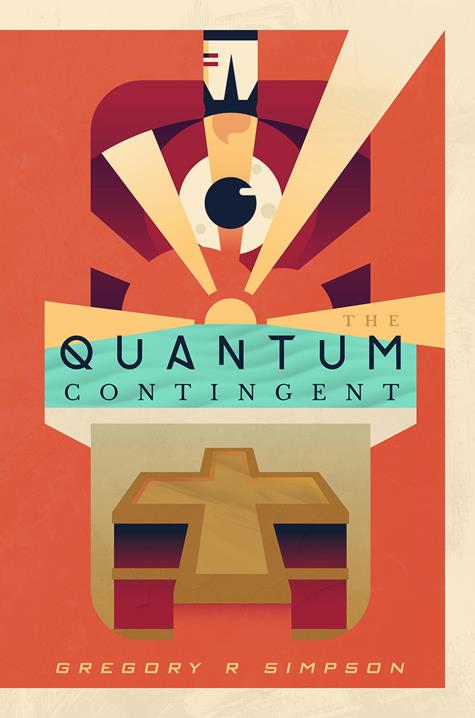 You may have guessed with a title like The Quantum Contingent, that the book I'm writing would involve Quantum Computing. So, in this blog I’m going to try and provide a very simplistic explanation of Quantum computing and give you an idea of some of the things that could be disrupted with a break through in what is often a confusing field. So, here goes. In traditional computing, the base unit of work is done by a transistor. It’s either on or off, a 1 or a 0. You can represent anything with these 1’s and 0’s. For example, the word “hello” in binary is represented as: 01101000 01100101 01101100 01101100 01101111 I think you’ll agree that all the things we can do with computers today is amazing. This is especially true when you think of it as all being done with just 1’s and 0’s. The Quantum computer ups this game significantly. In quantum computing, instead of a transistor that is on or off, we are dealing with quantum mechanics and quantum bits or "qubits". In quantum mechanics, more than one state can be represented at a time. A qubit could even represent both a 1 and a 0 simultaneously. This is called superposition. Let’s consider the necker cube. You can interpret it as having either the lower left or upper right square as the front side. In addition to this multi-state phenomena, qubits can be “entangled.” If you know the state of one qubit and it is entangled with another, then you automatically know the state of the other one. Very useful in speeding up certain types of processing. Finally, quantum particles act like waves. The system is interconnected like waves in the ocean. The combination of superposition, entanglement, and the wave nature of quantum particles allows you to do certain types of calculations extremely quickly. Think of it as being able to do many different calculations simultaneously. For those that want a more in-depth, but still high level discussion of quantum, I’d recommend this excellent article by Chad Orzel. https://www.forbes.com/sites/chadorzel/2018/10/15/what-is-a-quantum-computer-the-30000-foot-overview/?sh=4c38480c67bf Now, let’s talk about the implications. One of the calculations that quantum can do very well is the factoring of large prime numbers. This is the foundation of many forms of encryption today. With traditional computing, the time required to factor very large numbers makes it essentially impossible to break today's strong encryption routines. A classical computer would take around 300 trillion years to break RSA-2048 encryption. A quantum computer with 4000-5000 stable qubits could break RSA-2048 encryption in about 10 seconds. This is why we need to be concerned about quantum computing becoming sufficiently developed, it breaks our current methods of encryption. This means that a person with a highly developed quantum computer could break into many of our systems today, It would enable decrypting passwords to access critical systems, or even decode encoded transmissions on a network or encrypted files on a device. As you can imagine, this makes for a very powerful plot device in a spy novel. Quantum computing doesn’t stop there. Its wave nature is also very good at modeling large systems. This could be financial modeling, or genetic modeling or other types of statistical modeling. For my master’s thesis, I built an expert system that used ray tracing to automatically design a complex lens. At the time (many years ago!) this was a very computationally expensive problem. Each ray of light needed to be individually traced. I used a Monte Carlo simulation to generate thousands of rays and determine the light pattern coming through the complex lens. If I had a quantum computer, the Monte Carlo simulation could look at many outputs and paths simultaneously. This can be applied to models that look at financials, genetics, or even general artificial intelligence. (yep, super intelligence!) Bottom line, quantum will revolutionize computing, simulations and break most of today’s commonly used encryption techniques. So, now you understand why the title of my novel is the Quantum Contingent. I’ll be taking several real technologies and extrapolating them out a few years and trying to tell an exciting, suspenseful spy novel. I hope you'll enjoy it! Next time I’ll share some resources for other budding authors out there. Talk soon, Greg
0 Comments
Leave a Reply. |
The BlogGreg's blog will cover some of the things he learned as well as some of the tech and locations he used in his new novel, The Quantum Contingent. Archives
November 2023
Categories |

 RSS Feed
RSS Feed